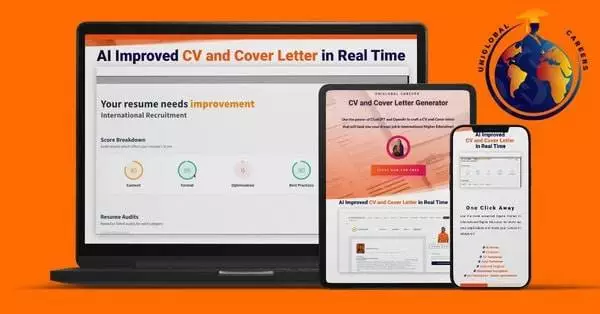Are you looking for a career in international student scholarships? Then it’s important to be prepared for the interview process. In this article, we will discuss the most common interview questions you may encounter when applying for a job in international education. We will provide insights into understanding the role of an international student scholarship officer, tips on preparing for the interview, advice on how to answer interview questions effectively, and guidance on post-interview follow-up.
Understanding the Role of an International Student Scholarship Officer
An international student scholarship officer plays a crucial role in helping students achieve their educational goals. This position involves identifying and managing scholarship opportunities for international students, reviewing applications, and assisting students through the application process. As a scholarship officer, you will collaborate with various stakeholders, including students, educational institutions, and external organizations.
Being an international student scholarship officer is a fulfilling and rewarding job that allows you to make a positive impact on the lives of students. By providing them with financial support, you are helping them overcome the barriers they may face in pursuing their education abroad. This role requires a deep understanding of the challenges international students encounter and a commitment to helping them succeed.
Key Responsibilities of a Scholarship Officer
As a scholarship officer, your responsibilities may include:
- Researching and identifying scholarship opportunities: This involves staying up to date with the latest scholarship programs and funding sources available to international students. You will need to conduct thorough research to ensure that you are aware of all the options that may be suitable for the students you work with.
- Managing scholarship applications and reviewing documents: You will be responsible for handling a large volume of scholarship applications. This includes reviewing the documents submitted by students, such as transcripts, recommendation letters, and personal statements, to assess their eligibility for different scholarships.
- Assessing students’ eligibility and making recommendations: Based on the information provided in the applications, you will need to evaluate students’ eligibility for different scholarships. This requires careful analysis and consideration of various factors, such as academic achievements, financial need, and personal circumstances.
- Communicating with students, educational institutions, and funding organizations: Effective communication is essential in this role. You will need to provide guidance and support to students throughout the application process, answer their questions, and address any concerns they may have. Additionally, you will collaborate with educational institutions and external organizations to ensure a smooth scholarship application and selection process.
- Tracking and evaluating scholarship outcomes: Once scholarships are awarded, you will be responsible for tracking the progress and success of the students who received the funding. This involves monitoring their academic performance, collecting feedback from them, and assessing the impact of the scholarships on their educational journey.
Essential Skills for Success in the Role
Successful scholarship officers possess a range of skills, including:
- Strong organizational and time management abilities: With numerous scholarship applications to handle, it is crucial to have excellent organizational and time management skills. This will help you stay on top of deadlines and ensure that each application receives the attention it deserves.
- Excellent communication and interpersonal skills: As a scholarship officer, you will be interacting with students from diverse backgrounds, as well as collaborating with various stakeholders. Effective communication and interpersonal skills are essential for building relationships, providing guidance, and resolving any issues that may arise.
- Attention to detail and the ability to analyze complex information: Reviewing scholarship applications requires a keen eye for detail. You need to carefully examine each document and assess the students’ qualifications. Additionally, you may need to analyze complex information, such as financial statements, to determine eligibility for certain scholarships.
- Knowledge of scholarship programs and funding sources: To be successful in this role, you need to have a comprehensive understanding of scholarship programs and funding sources available to international students. This includes staying informed about changes in eligibility criteria, application processes, and deadlines.
- Ability to work collaboratively with diverse stakeholders: Collaboration is key in the field of international student scholarships. You will be working with students, educational institutions, and external organizations. Being able to work effectively with diverse stakeholders, understanding their needs, and finding common ground is essential for success.
Preparing for the Interview
Before your interview, it’s essential to prepare thoroughly. This involves researching the institution and scholarship program, as well as understanding the interview process.

Researching the Institution and Scholarship Program
Familiarize yourself with the institution’s mission, values, and scholarship offerings. Visit their website, read about their past recipients, and gain a comprehensive understanding of their scholarship programs. This knowledge will demonstrate your genuine interest and commitment during the interview.
Understanding the Interview Process
Each institution may have a unique interview process. It’s important to understand what to expect. Some interviews may be conducted in-person, while others may take place over the phone or through video conferencing. Familiarize yourself with the format and prepare accordingly.
Most Common Interview Questions
During your interview, you can anticipate questions related to your experience, qualifications, understanding of the role, and scenario-based questions. Let’s explore each category:
Questions About Your Experience and Qualifications
Be prepared to discuss your relevant experience, educational background, and any specific skills that make you a strong candidate for the role. Highlight any previous experience working with international students or in scholarship administration.
Questions About Your Understanding of the Role
Your interviewer may ask questions to determine your understanding of the responsibilities and challenges of the scholarship officer role. Be prepared to discuss how you would handle specific situations, such as managing a large volume of applications or advising students on scholarship opportunities.
Scenario-Based Questions
Scenario-based questions test your problem-solving skills and your ability to think critically under pressure. Prepare by considering different scenarios you might encounter as a scholarship officer, and think through how you would approach and resolve them.
How to Answer Interview Questions Effectively
Answering interview questions effectively requires careful preparation and effective communication. Two strategies can help you provide comprehensive and articulate answers:
A multi-ethnic group of college age students are sitting in class and have their hands raised answering questions.

Using the STAR Method for Behavioral Questions
The STAR Method (Situation, Task, Action, and Result) helps structure your responses to behavioral questions. Start by describing the situation or task, explain the actions you took to address it, and conclude by highlighting the positive results or outcomes.
Demonstrating Your Knowledge of the Scholarship Program
In addition to showcasing your skills and qualifications, it’s essential to demonstrate your knowledge of the scholarship program and how it aligns with the institution’s goals. This will indicate your commitment to advancing the institution’s mission and supporting students’ success.
Post-Interview Follow-Up
Once the interview is concluded, it’s important to follow up with a thank-you note and to take appropriate action if you don’t hear back within the expected timeline.
Sending a Thank-You Note
Express your gratitude for the opportunity to interview and reiterate your interest in the position. A well-crafted thank-you note not only demonstrates your professionalism but also helps you stand out from other candidates.
What to Do If You Don’t Hear Back
If you haven’t received a response within the anticipated timeframe, don’t hesitate to follow up with a polite and professional email. This shows your continued interest in the position and provides an opportunity to inquire about the status of your application.
By preparing for the interview, understanding the role, and effectively answering interview questions, you can increase your chances of securing a job in international student scholarships. Remember to follow up after the interview and maintain a positive attitude throughout the process. Good luck!


